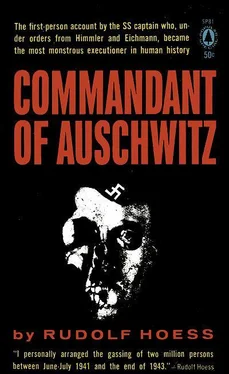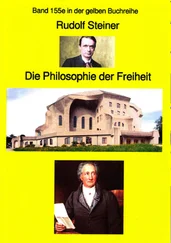SS Obersturmbannführer Adolf Eichmann was head of the Jewish section IV B 4 in the Reich Security Head Office
Eichmann originally came from Linz and was therefore on friendly terms with Kaltenbrunner during the time of the illegal SS activities in Austria. After the occupation he went to the SD and later to the Gestapo. Finally he joined Müller in Section IV of the Reich Security Head Office.
Eichmann had concerned himself with the Jewish question since his youth and had an extensive knowledge of the literature on the subject. He lived for a long time in Palestine in order to learn more about the Zionists and the growing Jewish state. Eichmann knew all the places where Jews had settled and also their approximate numbers, which latter were kept a secret even from the Jews themselves. He also knew the habits and customs of the orthodox Jews, as well as the views of the assimilated Jews of the West.
It was because of his special knowledge that he was made head of the Jewish section.
I myself first got to know him after I had received from the Reichsführer SS the orders for the destruction of the Jews, when he visited me in Auschwitz to discuss the exact details of the extermination process.
Eichmann was a vivacious, active man in his thirties, and always full of energy. He was constantly hatching new plans and perpetually on the look out for innovations and improvements. He could never rest. He was obsessed with the Jewish question and the order which had been given for its final solution.
Eichmann had to make continual reports to the Reichsführer SS, directly and by word of mouth, concerning the preparation and completion of the individual actions. He was the only person in a position to give the exact figures involved.
He kept almost everything in his memory. His memorandums consisted of a few pieces of paper which he always carried with him, inscribed with signs that were unintelligible to anyone else. Even his permanent representative in Berlin, Günther, could not always furnish detailed information. Eichmann was constantly away on service matters and it was only rarely that he could be found in his Berlin office.
The arrangements for an action against the Jews were made by members of Eichmann’s staff stationed in the countries concerned, who were thus fairly well acquainted with the country and able to prepare the necessary groundwork for him. Wisliceni, for example, operated in Slovakia, Greece, Romania, Bulgaria, and Hungary. The negotiations with the governments of the countries concerned were conducted by the German diplomatic representatives, in most cases by specially commissioned delegates from the Foreign Office.
Those governments which agreed to the extradition of the Jews appointed a department to organize their arrest and delivery. Eichmann then discussed the details of transportation direct with this department and gave them the benefit of his experience on matters connected with their arrest. In Hungary, for example, the action was carried out by the Ministry for Internal Affairs and the police. Eichmann and his colleagues supervised the operation, and intervened if it was being done too slowly or too carelessly. Eichmann’s staff also had to make transport available and arrange timetables with the Ministry of Transport.
On Pohl’s orders I made three visits to Budapest in order to obtain an estimate of the number of able-bodied Jews that might be expected. This gave me the opportunity of observing Eichmann’s methods of negotiating with the Hungarian government departments and the army. His manner of approach was extremely firm and matter-of-fact, but nevertheless amiable and courteous, and he was liked and made welcome wherever he went. This was confirmed by the innumerable private invitations he received from the chiefs of these departments. Only the Hungarian army showed no pleasure in Eichmann’s visits. The army sabotaged the surrender of the Jews whenever they could, but they did it in such a manner that the Hungarian government was unable to intervene. The majority of the Hungarian population, particularly in eastern Hungary, were unfavorably disposed toward the Jews and there cannot have been many Jews in that part, in 1943, who escaped being rounded up. If they did, it was only because they were lucky enough to make their way across the Carpathians to Romania.
Eichmann was absolutely convinced that if he could succeed in destroying the biological basis of Jewry in the East by complete extermination, then Jewry as a whole would never recover from the blow. The assimilated Jews of the West, including America, would, in his opinion, be in no position (and would have no desire) to make up this enormous loss of blood and there would therefore be no future generation worth mentioning. He was strengthened in these views by the continual efforts of the leader of the Hungarian Jews, a fanatical Zionist, to persuade Eichmann to exclude from the transports Jews with large families. Eichmann repeatedly had long discussions with this Zionist leader on all questions relating to the Jews. Moreover it was interesting to hear that this man had up-to-date knowledge concerning Auschwitz and the number of transports, and of the process of selection and extermination. Eichmann’s journeys and his dealings with the authorities of the various countries were also kept under continuous observation. The leader of the Jews in Budapest was able to tell Eichmann exactly where he had been in recent weeks and with whom he had been negotiating.
Eichmann was completely obsessed with his mission and also convinced that this extermination action was necessary in order to preserve the German people in the future from the destructive intentions of the Jews. This was the way in which he regarded his task, and he employed all his energy in fulfilling the plans for extermination which the Reichsführer SS had made.
Eichmann was also a determined opponent of the idea of selecting from the transports Jews who were fit for work. He regarded it as a constant danger to his scheme for a “final solution,” because of the possibility of mass escapes or some other event occurring which would enable the Jews to survive. In his view action should be taken against every Jew that could be got hold of, and such actions ought to be pursued to their conclusion as quickly as possible, since it was impossible to anticipate the final result of the war. Already in 1943 he had doubts in a complete German victory and believed that the end would be inconclusive.
SS Gruppenführer and Lieutenant General of the Police, Müller was head of Department IV in the Reich Security Head Office and Deputy Chief of the Security Police and SD
Müller served as an officer in the First World War and later joined the Bavarian police. After Hitler had assumed power, he was transferred to the Bavarian political police under Best, who installed him in the office of the State Secret Police in Berlin.
He quickly assumed a prominent position in this office under Heydrich, and finally became head of the Gestapo himself.
Müller was a police official by choice. It was only after the assumption of power that he became a member of the Party, and it was comparatively late before he was enrolled in the SS.
His specialist knowledge of police methods (he always was an active executive) and his aptitude for the job were particularly useful in the development of the Gestapo. He also played a decisive part in its organization.
It was Müller’s principle to remain in the background, for he did not care to be associated with any kind of operations or actions. Yet it was he who organized all the larger and more important actions taken by the security police, and it was he who planned their execution.
Читать дальше












